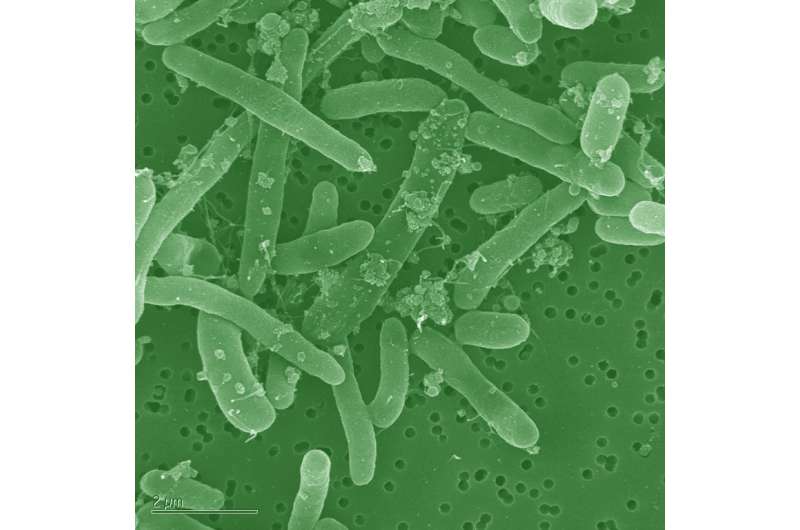E. coli fatty acid biosynthesis system could more efficiently convert biomass to desired products

Valuable chemicals and fuels have been produced in engineered strains of Escherichia coli by deregulating this organism's fatty acid synthase (FAS), causing the microorganism to pump out chemicals. For example, E. coli produces chemicals used to manufacture detergents and lubricants as well as methyl ketones that have promising fuel properties. Previous microbial production methods have been based on highly regulated enzymatic processes that can limit yield. Researchers developed an alternative FAS system in which enzymes from other organisms work with the native FAS in E. coli to improve the microbe's capacity for chemical production.
Although, the fatty alcohols can be generated from petroleum, plant, and animal sources, microbial synthesis of such chemicals is a more sustainable production path. Further optimization of this system could lead to strains with more efficient conversion of biomass into fuels and desired products.
As a vital element of metabolism, FAS is stringently regulated in bacteria. To bypass this regulation, researchers at the U.S. Department of Energy's Joint BioEnergy Institute demonstrated the recombinant expression and activity of several type 1 FAS enzymes that functioned in parallel with the native E. coli FAS. The most active heterologous FAS expressed in E. coli was Corynebacterium glutamicum FAS1A, which was leveraged to produce oleochemicals including fatty alcohols and methyl ketones. This work is believed to be the first example of in vivo function of heterologous FAS in E. coli. Using FAS1 enzymes for biofuel and bioproduct production could lead to more efficient conversion of biomass. Additionally, functional expression of these large enzyme complexes in E. coli will enable their study without the need to culture the native organisms.
More information: Robert W. Haushalter et al. Development of an orthogonal fatty acid biosynthesis system in E. coli for oleochemical production, Metabolic Engineering (2015). DOI: 10.1016/j.ymben.2015.04.003
Provided by US Department of Energy





















